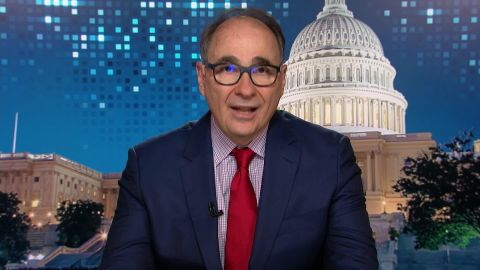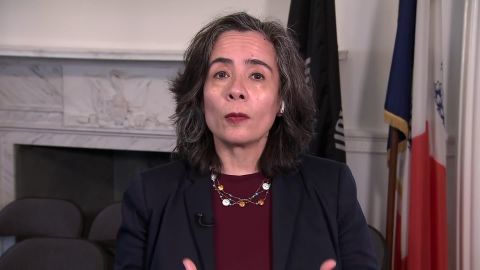Read Transcript EXPAND
CHRISTIANE AMANPOUR: So, you know, you have been in emergency care. You’re a front- line doctor here in a part of London. Can you give me a lay of the land? Just paint a picture of what is happening in the hospitals now, particularly the ones, you know, that you’re at.
SONIA ADESARA, U.K. NATIONAL HEALTH SERVICE: So, the whole health service nationally preparing for this virus. We have known for quite a few weeks that this virus is coming and preparations are happening. You’ll start to see over the next few weeks things like routine operations being canceled because we want to try and free up ICU beds. There’s talk about bringing in staff, retired staff, retired doctors and retired nurses because we’re worried about shortages of health care staff. And we’re also seeing certain clinics in the community be canceled and outpatient services canceled, again, trying to free up staff to open up the capacity particularly around in our hospitals and intensive care units.
AMANPOUR: Now, look, the world and certainly Great Britain points to the NHS system as one of the best public health care systems in the world.
ADESARA: Yes.
AMANPOUR: Are you confident that you have what it takes? You just heard the health commissioner in New York City, they do not have enough beds. The governor’s called for —
ADESARA: Yes.
AMANPOUR: — the federal army to be deployed to do what it does, build emergency beds for those who get sick. Do you have enough front-line staff? Are they protected enough? Certainly, testing is not happening. Can you just tell us what you have and what are the biggest challenges?
ADESARA: I guess just listening to your previous guest, I do feel very lucky to be working in the National Health Service in U.K. because we do have a world-class service and everyone has access to it, free health care, that’s free community care, free intensive care, free access to testing. So, we’re very lucky to have that. And also, because we have a nationalized health care system, where the response is able to be coordinated nationally. So, we’re able to move staff in different units, we are able to work together, we are able to set up community services. We have an NHS 111 service, which allows people to be — speak to a health care professional without going in. So, we’ve been able to have a very coordinated action plan to this, and very quickly. But there are difficulties. We have — our health care service, for the past decade, has been underfunded. Prior to this, our health care service was — we did have quite severe staff shortages across the health care service and many of us front-line staff have been making a lot of noise over the last few years that we do not have enough hospital beds compared to other countries in Europe. And intensive care beds is one of the areas where we do have one of the least number of beds per person compared to other European countries. So, Germany, for example, has four times the number of intensive care beds than we do. Having said that, there are plans being put in place now to increase that capacity. So, as I’ve said, we are increasing intensive care beds. We are buying — we are creating — buying more ventilators and we’re trying to train up staff to use these ventilators, but it is going to be difficult few weeks.
About This Episode EXPAND
New York City health commissioner Oxiris Barbot explains the state of the COVID-19 pandemic in her region. Dr. Sonia Adesara discusses whether the U.K.’s healthcare system is prepared for the crisis. Harvard economics professor Jason Furman discusses the economic fallout caused by the crisis. David Axelrod reacts to last night’s debate between Joe Biden and Bernie Sanders.
LEARN MORE



